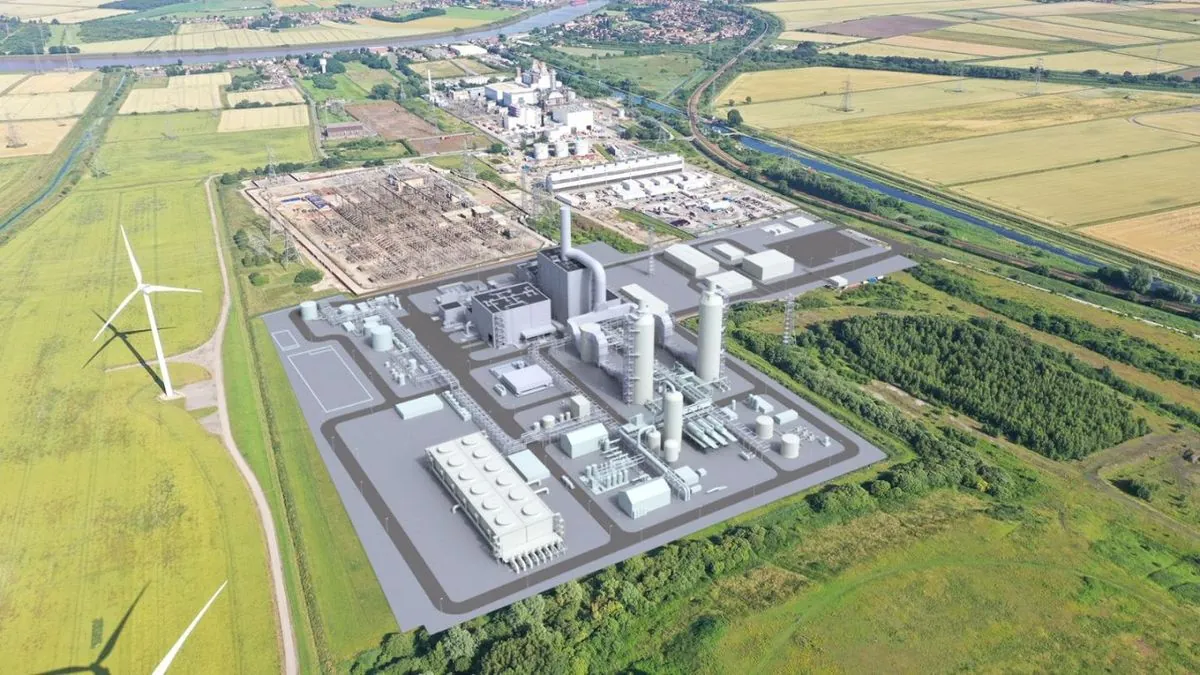The UK government has unveiled a significant investment plan for carbon capture and storage (CCS) technology, allocating £21.7 billion over the next 25 years. This initiative aims to reduce industrial emissions and stimulate economic growth in northern England.
CCS technology, first proposed in the 1970s, has been identified as a crucial tool in the UK's strategy to achieve its net-zero emissions target by 2050. The technology has the potential to reduce CO2 emissions from power plants by up to 90%, making it a key component in the fight against climate change.
Rachel Reeves, the finance minister, emphasized the dual benefits of this investment during her announcement in Liverpool:
"Carbon capture technology is not just about cleaning up our industry and our energy sector. It is a massive opportunity to attract investment and create thousands of skilled jobs."
The government anticipates that this funding will attract £8 billion in private investment and generate 4,000 direct jobs in the communities hosting the projects. This aligns with the growing global CCS market, which is expected to reach $7 billion by 2028.
Two CCS sites in northern England are at the center of this initiative. The HyNet North West cluster in Merseyside, led by Italian energy group Eni, aims to capture emissions from industrial plants and store them in depleted gas fields in the Irish Sea. Claudio Descalzi, Eni's CEO, highlighted the project's potential to decarbonize energy-intensive industries and drive economic growth in the region.
The second project, located in Teesside, involves oil and gas majors Equinor and BP. This initiative plans to store captured emissions under the North Sea, utilizing the region's vast potential storage capacity, which could accommodate centuries of UK CO2 emissions.
Together, these two sites are expected to have a combined annual carbon capture capacity of 8.5 million metric tons, equivalent to removing 4 million cars from the road. This capacity is crucial, as the International Energy Agency considers CCS essential for reaching global net-zero emissions targets.
However, the announcement has faced criticism from environmental groups. Doug Parr, Greenpeace UK's policy director, expressed concerns about the investment potentially extending the lifespan of fossil fuel production. This highlights the ongoing debate surrounding CCS technology, which has faced challenges in the past, including the cancellation of the UK's first CCS project in 2015 due to funding issues.
Despite these concerns, the UK government remains committed to CCS as part of its climate strategy. The technology's versatility, applicable to various industries such as cement and steel production, makes it a valuable tool in the transition to a low-carbon economy. Additionally, CCS can be combined with bioenergy to achieve negative emissions and used in the production of low-carbon hydrogen.
As the UK moves forward with this ambitious plan, it joins global efforts to implement CCS technology. With over 30 commercial CCS facilities operating worldwide and the EU aiming to store 50 million tonnes of CO2 annually by 2030, the UK's investment represents a significant step in the global fight against climate change.
